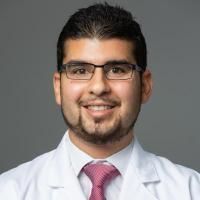Bacteremia in solid organ transplant recipients as compared to immunocompetent patients: Acute phase cytokines and outcomes in a prospective, matched cohort study.
Date
2021-06
Journal Title
Journal ISSN
Volume Title
Repository Usage Stats
views
downloads
Citation Stats
Attention Stats
Abstract
We undertook a prospective, matched cohort study of patients with Staphylococcus aureus bacteremia (SAB) and gram-negative bacteremia (GNB) to compare the characteristics, outcomes, and chemokine and cytokine response in transplant recipients to immunocompetent, nontransplant recipients. Fifty-five transplant recipients (GNB n = 29; SAB n = 26) and 225 nontransplant recipients (GNB n = 114; SAB n = 111) were included for clinical analysis. Transplant GNB had a significantly lower incidence of septic shock than nontransplant GNB (10.3% vs 30.7%, p = .03). Thirty-day mortality did not differ significantly between transplant and nontransplant recipients with GNB (10.3% vs 15.8%, p = .57) or SAB (0.0% vs 11.7%, p = .13). Next, transplant patients were matched 1:1 with nontransplant patients for the chemokine and cytokine analysis. Five cytokines and chemokines were significantly lower in transplant GNB vs nontransplant GNB: IL-2 (median [IQR]: 7.1 pg/ml [7.1, 7.1] vs 32.6 pg/ml [7.1, 88.0]; p = .001), MIP-1β (30.7 pg/ml [30.7, 30.7] vs 243.3 pg/ml [30.7, 344.4]; p = .001), IL-8 (32.0 pg/ml [5.6, 53.1] vs 59.1 pg/ml [39.2, 119.4]; p = .003), IL-15 (12.0 pg/ml [12.0, 12.0] vs 12.0 pg/ml [12.0, 126.7]; p = .03), and IFN-α (5.1 pg/mL [5.1, 5.1] vs 5.1 pg/ml [5.1, 26.3]; p = .04). Regulated upon Activation, Normal T Cell Expressed and Secreted (RANTES) was higher in transplant SAB vs nontransplant SAB (mean [SD]: 750.2 pg/ml [194.6] vs 656.5 pg/ml [147.6]; p = .046).
Type
Department
Description
Provenance
Subjects
Citation
Permalink
Published Version (Please cite this version)
Publication Info
Eichenberger, Emily M, Felicia Ruffin, Michael Dagher, Reginald Lerebours, Sin-Ho Jung, Batu Sharma-Kuinkel, Andrew N Macintyre, Joshua T Thaden, et al. (2021). Bacteremia in solid organ transplant recipients as compared to immunocompetent patients: Acute phase cytokines and outcomes in a prospective, matched cohort study. American journal of transplantation : official journal of the American Society of Transplantation and the American Society of Transplant Surgeons, 21(6). pp. 2113–2122. 10.1111/ajt.16388 Retrieved from https://hdl.handle.net/10161/24331.
This is constructed from limited available data and may be imprecise. To cite this article, please review & use the official citation provided by the journal.
Collections
Scholars@Duke

Felicia Ruffin

Reginald (Gino) Lerebours
Education: Masters Degree, Biostatistics. Harvard University. 2017
Bachelors Degree, Statistics. North Carolina State University. 2015
Overview: Gino currently collaborates with researchers, residents, and clinicians in the Departments of Surgery, Radiology and Infectious Diseases. His main research interests and experience are in statistical programming, data management, statistical modeling, statistical consulting and statistical education.

Sin-Ho Jung
Design of Clinical Trials
Survival Analysis
Longitudinal Data Analysis
Clustered Data Analysis
ROC Curve Analysis
Design and Analysis of Microarray Studies
Big Data Analysis

Andrew Neil Macintyre
Andrew Macintyre, PhD, directs the Immunology Unit within the Duke Regional Biocontainment Laboratory. The Macintyre lab team designs and performs assays to quantify immune reconstitution and immune responses. The lab specializes in multiplex cytokine arrays, flow cytometry, high-throughput ELISAs, qRT-PCR, and other molecular tests.
The assays his team develops and runs support research into biodefense and critical public health challenges. Long-running collaborative projects include the evaluation of radiation countermeasures and the development of vaccines for influenza, gonorrhea, SARS-CoV2, and other pathogens.

Joshua Thomas Thaden

Matthew Sinclair

Scott Michael Palmer
Dr. Palmer is a physician investigator, clinician, and academic leader. He is a Donald F. Fortin, MD Distinguished Professor of Medicine at Duke University, Vice Chair for Research in the Department of Medicine, Director of Medicine Plus Therapeutic Area at the Duke Clinical Research Institute, and Director of Clinical Research in the Duke Transplant Center. He is an expert in the care of patients with advanced lung diseases, such as interstitial lung diseases (ILDs), chronic obstructive pulmonary disease (COPD), and lung transplantation.
Dr. Palmer’s successful research career includes over 20 years of continuous NIH funding and over 300 publications. He has held key leadership roles in national and international pulmonary and transplant societies, has chaired many sessions at national and international meetings, served on the editorial board for prominent journals, and serves regularly on grant review study sections. He has received numerous honors including election into Alpha Omega Alpha (AOA), the American Society for Clinical Investigation (ASCI), and the Association of American Physicians (AAP).
During his career, he has led numerous multicenter clinical trials, data coordinating centers, registries and large real-world data studies across different lung diseases. His research in lung diseases has defined the best clinical practices, discovered novel biomarkers, and identified genetic risk factors. His work in idiopathic pulmonary fibrosis (IPF) advanced the clinical development of LPA1 antagonism as a treatment. His work in bronchiolitis obliterans syndrome (BOS) identified immune mechanisms that alter airway cell biology and underly disease development. He continues to lead multicenter studies that generate high quality evidence to guide patient care and to utilize cutting edge translational approaches such as single cell and spatial transcriptomics of human lung tissue to discover lung disease mechanisms.
Dr. Palmer is a dedicated mentor to trainees and junior faculty, having personally mentored over 40 pre- and post-doctoral trainees, many of whom are now engaged in their own successful research careers. He also co-leads multiple institutional training programs, including R38 and T32 grants, reflecting his deep commitment to training the next generation of academic investigators.

Barbara Dudley Alexander
Clinical research related to infectious complications of solid organ and bone marrow transplantation, with a particular interest in the treatment and rapid diagnosis of fungal disease. Training the next generation of Transplant Infectious Disease Physicians is a special focus of mine as the Principal Investigator of our Interdisciplinary T32 Training Program funded the NIH.

Vance Garrison Fowler
Determinants of Outcome in Patients with Staphylococcus aureus Bacteremia
Antibacterial Resistance
Pathogenesis of Bacterial Infections
Tropical medicine/International Health

Stacey Ann Maskarinec
Unless otherwise indicated, scholarly articles published by Duke faculty members are made available here with a CC-BY-NC (Creative Commons Attribution Non-Commercial) license, as enabled by the Duke Open Access Policy. If you wish to use the materials in ways not already permitted under CC-BY-NC, please consult the copyright owner. Other materials are made available here through the author’s grant of a non-exclusive license to make their work openly accessible.
